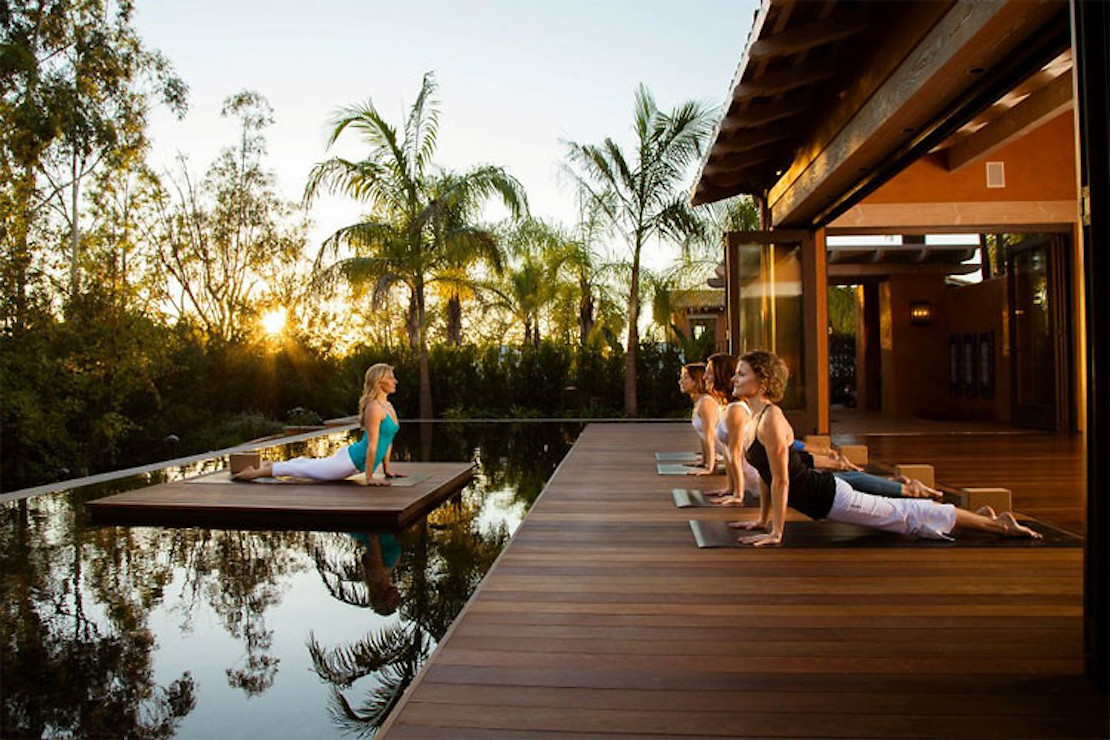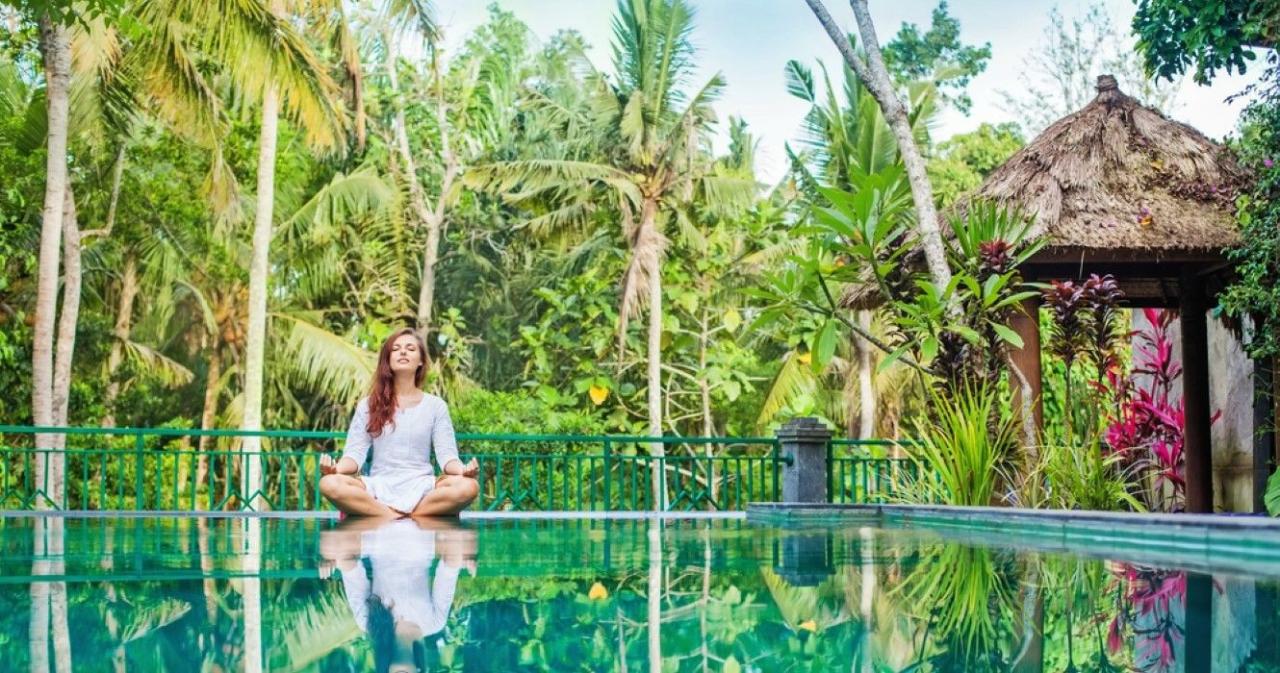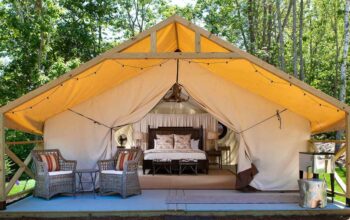In a world perpetually connected and increasingly stressed, the traditional concept of a “vacation” as mere relaxation is undergoing a profound transformation. Today’s discerning traveler seeks more than just a break; they desire a journey that rejuvenates mind, body, and spirit. This burgeoning demand has propelled wellness retreats from a niche offering to a mainstream phenomenon, fundamentally redefining modern vacations. This comprehensive exploration will delve into the driving forces behind this boom, dissecting the diverse types of wellness retreats, their profound benefits, practical considerations for choosing one, and how this holistic approach to travel is shaping the future of global tourism. Prepare to discover how escapes are becoming opportunities for genuine restoration and personal growth.
The Quest for Rejuvenation

For decades, vacations were synonymous with indulgence – lavish meals, endless lounging, and perhaps a bit of sightseeing. While these elements still hold appeal, a growing segment of the global population is recognizing that true restoration requires a more intentional approach. The relentless pace of modern life, characterized by constant digital stimulation, demanding careers, and urban pressures, has led to a collective yearning for deeper healing and self-care.
Wellness retreats offer a powerful antidote to this exhaustion. They are curated experiences designed to help individuals disconnect from the everyday grind and reconnect with themselves, often through practices like yoga, meditation, healthy eating, fitness, and immersion in nature. This isn’t just about escaping; it’s about actively improving one’s physical, mental, and emotional well-being, returning home not just rested, but genuinely transformed and re-energized.
The Driving Forces Behind the Wellness Retreat Boom
Several interconnected trends and societal shifts are contributing to the explosive growth and popularity of wellness retreats:
A. Increased Awareness of Mental Health and Burnout:
There’s a growing global recognition of the importance of mental well-being and the pervasive issue of burnout. Individuals are actively seeking strategies to manage stress, reduce anxiety, and improve their emotional resilience. Wellness retreats provide structured environments and expert guidance for addressing these concerns, offering a crucial escape from the pressures of daily life. They serve as a proactive measure against chronic stress and a path toward inner peace.
B. Rise of Holistic Health and Preventative Care:
Modern health philosophies are moving beyond reactive medicine towards holistic and preventative approaches. People are investing in lifestyle choices that promote long-term health, and wellness retreats align perfectly with this ethos. They offer a concentrated period of healthy habits, education, and practices that guests can integrate into their daily lives post-retreat, focusing on preventing illness rather than just treating it.
C. Digital Detox and Disconnection Desire:
In an always-on world, the urge to disconnect from screens and digital notifications is stronger than ever. Wellness retreats often encourage or enforce digital detoxes, providing a rare opportunity for genuine disconnection and a return to presence, fostering mindfulness and reducing digital fatigue. This intentional break from technology allows the mind to truly rest and recalibrate.
D. Growing Interest in Mindfulness and Spirituality:
Practices like meditation, yoga, and mindfulness are gaining widespread acceptance for their profound benefits. Many individuals are exploring spiritual growth and seeking deeper meaning. Wellness retreats provide immersive environments for cultivating these practices, often led by experienced instructors, helping participants to develop inner calm and clarity.
E. Demand for Experiential Travel:
Today’s travelers crave experiences over mere sightseeing. Wellness retreats offer deeply immersive and often transformative experiences that engage the senses, challenge the body, and expand the mind, creating lasting memories and personal growth that go beyond traditional tourist activities. They offer a tangible sense of achievement and self-improvement.
The Diverse Landscape of Wellness Retreats
The term “wellness retreat” is broad, encompassing a wide array of specialized experiences designed to address different needs and preferences.
Types of Transformative Wellness Retreats
A. Yoga and Meditation Retreats:
These are perhaps the most classic form, focusing on daily yoga practices (various styles), guided meditation sessions, and often include healthy vegetarian or vegan cuisine. They aim to deepen practice, foster mindfulness, and achieve inner peace. Settings often range from tranquil beachfronts to serene mountain ashrams.
B. Fitness and Active Wellness Retreats:
Centered around physical activity, these retreats might include hiking, cycling, surfing, Pilates, high-intensity interval training (HIIT), or strength conditioning. They often combine challenging workouts with nutritious meals and recovery techniques, aiming to boost physical health and endurance. Some specialize in a single activity, while others offer a diverse fitness menu.
C. Detox and Nutrition Retreats:
Focused on cleansing the body, these retreats typically involve specialized diets (e.g., juice cleanses, raw food, or elimination diets), nutritional education, and often incorporate treatments like colon hydrotherapy or infrared saunas. The goal is to rid the body of toxins and reset eating habits. Expert nutritionists and chefs are often on staff.
D. Spa and Pampering Retreats:
While all wellness retreats offer some level of self-care, these focus specifically on luxurious spa treatments, therapeutic massages, hydrotherapy, and beauty treatments. They prioritize relaxation and indulgence for ultimate physical rejuvenation and stress reduction, often set in exquisitely designed facilities.
E. Mindfulness and Stress Reduction Retreats:
These retreats emphasize techniques for managing stress and cultivating present-moment awareness. They may include extended meditation, breathwork, journaling, nature walks, and workshops on stress management, emotional regulation, and positive psychology. The aim is to equip participants with tools for daily life.
F. Adventure and Nature Immersion Retreats:
Combining physical activity with deep connection to nature, these retreats might involve guided wilderness expeditions, forest bathing, cold plunges, or outdoor survival skills. They harness the restorative power of natural environments for physical and mental well-being. Think glamping with a purpose, or luxury lodges nestled in pristine wilderness.
Why Invest in a Wellness Retreat?
The appeal of wellness retreats extends beyond their specific activities. They offer a holistic range of benefits that contribute to lasting personal transformation.
Advantages of Embarking on a Wellness Retreat
A. Deep Disconnection and Recharging:
By removing you from your usual environment and daily stressors, retreats facilitate a complete mental break, allowing for genuine rest and deep recharging of your physical and emotional batteries. This is often the most immediate and palpable benefit.
B. Holistic Health Improvement:
Whether focusing on nutrition, fitness, or mental well-being, retreats provide a concentrated period of healthy habits that can significantly improve overall health, reduce inflammation, boost immunity, and enhance physical vitality.
C. Personal Growth and Self-Discovery:
The introspective nature of many retreats, combined with expert guidance, fosters self-awareness, helps identify limiting beliefs, and encourages personal breakthroughs, leading to a deeper understanding of oneself and one’s purpose.
D. Skill Acquisition and Habit Formation:
You learn practical skills (e.g., yoga poses, meditation techniques, healthy cooking) that you can integrate into your daily life. The immersive environment helps to kickstart or solidify new, positive habits.
E. Stress Reduction and Emotional Regulation:
Through practices like mindfulness, breathwork, and connection with nature, retreats significantly reduce stress levels and equip you with tools to better manage emotions and navigate future challenges with greater calm.
F. Improved Sleep Quality:
With structured days, healthy routines, and reduced digital stimulation, many participants experience significant improvements in sleep patterns and overall sleep quality, which is fundamental to well-being.
G. Connection with Like-Minded Individuals:
Retreats often attract people with shared interests in well-being, fostering a supportive community and opportunities for meaningful connections and friendships, mitigating feelings of isolation.
Choosing Your Perfect Retreat

With the proliferation of wellness retreats, selecting the right one can feel overwhelming. Careful consideration of your needs and preferences is key to a successful experience.
Key Factors for Selecting a Wellness Retreat
A. Identify Your Primary Goal:
Are you seeking relaxation, fitness, detox, emotional healing, spiritual growth, or skill development? Clearly defining your objective will narrow down your options significantly.
B. Research Retreat Style and Philosophy:
Each retreat has a unique ethos. Some are highly structured and disciplined, while others are more flexible and lenient. Read reviews, watch videos, and understand the retreat’s overall philosophy to ensure it aligns with your comfort level.
C. Consider the Location and Environment:
Do you prefer a beachfront, mountain, forest, or urban setting? The environment significantly impacts the retreat experience. Also, consider accessibility and ease of travel to the location.
D. Check the Program and Schedule:
Review the daily schedule. Does it offer a balance of structured activities and free time? Are the activities appealing to you, or do they seem too intense/too relaxed? Ensure the program aligns with your goals and energy levels.
E. Understand the Instructor/Facilitator Expertise:
Research the qualifications and experience of the retreat leaders, instructors, and therapists. Their expertise is crucial to the quality and safety of the program, especially for specialized retreats.
F. Review Accommodation and Amenities:
While some prefer rustic simplicity, others expect luxury. Ensure the accommodation style, comfort level, and amenities (e.g., private vs. shared rooms, en-suite bathrooms, spa facilities) meet your expectations.
G. Inquire About Dietary Options:
If you have specific dietary needs or preferences (vegan, gluten-free, allergies), confirm that the retreat can accommodate them. Healthy and nourishing food is a cornerstone of most wellness retreats.
H. Consider the Group Size and Demographics:
Do you prefer a large, social group or a small, intimate setting? Some retreats cater to specific demographics (e.g., women-only, couples, specific age groups). Understanding the typical participant profile can help you gauge fit.
I. Factor in the Cost and Inclusions:
Understand what’s included in the price (accommodation, meals, activities, treatments, transfers). Compare costs against the value offered and your budget. Be wary of hidden fees.
J. Read Reviews and Testimonials:
Seek out independent reviews from past participants on platforms like Google, TripAdvisor, or wellness travel websites. This provides valuable insights into the actual experience and can highlight potential pros and cons.
K. Check for Certifications or Affiliations:
Some wellness organizations or retreat centers hold specific certifications or affiliations with reputable wellness bodies, which can indicate a higher standard of quality and ethical operation.
The Future of Travel
The boom in wellness retreats is not a fleeting trend but a fundamental shift in how people approach leisure and self-care. Its influence will continue to grow, shaping the broader travel industry.
Emerging Trends in Wellness Travel
A. Personalized and Data-Driven Retreats:
Future retreats will leverage AI and biometric data to offer hyper-personalized programs, recommending specific activities, diets, and therapies based on individual health profiles and goals. This moves beyond generalized programs to truly bespoke experiences.
B. Integration with Medical Tourism:
The lines between wellness and preventative medical tourism will blur further, with retreats offering advanced diagnostics, genetic testing, and doctor-supervised programs focused on optimizing health and longevity.
C. Corporate Wellness Retreats:
Businesses will increasingly invest in wellness retreats for their employees as a strategy to combat burnout, improve team cohesion, and boost productivity, recognizing the return on investment in employee well-being.
D. Sustainable and Regenerative Wellness:
A deeper commitment to environmental and social sustainability will become standard. Retreats will not only minimize their footprint but actively contribute to the regeneration of local ecosystems and support indigenous communities.
E. Hybrid Models (Virtual and In-Person):
While in-person immersion remains key, hybrid models may emerge, offering pre- and post-retreat virtual support, online masterclasses, or even fully virtual “micro-retreats” for those unable to travel.
F. Intergenerational Wellness:
Retreats catering to multiple generations (e.g., families with adult children, grandparents and grandchildren) will become more common, focusing on shared well-being experiences that strengthen familial bonds.
G. “Workation” Wellness:
Retreats will integrate elements for digital nomads or remote workers, offering dedicated co-working spaces and connectivity alongside wellness programming, allowing participants to blend work with rejuvenation.
Conclusion
The wellness retreat boom signifies a profound evolution in what we expect from our time away. It’s a powerful acknowledgment that true leisure isn’t just about escaping reality, but about intentionally engaging in practices that heal, restore, and empower. These retreats are not merely luxurious breaks; they are investments in self-care, personal growth, and a more balanced, resilient way of living.
By choosing a wellness retreat, you’re not just booking a trip; you’re embarking on a journey to rediscover yourself, cultivate healthier habits, and equip yourself with tools to navigate the complexities of modern life with greater calm and clarity. As the world continues to prioritize well-being, wellness retreats will undoubtedly remain at the forefront, continuing to redefine modern vacations as transformative pathways to a healthier, happier you. So, when will you answer the call to rejuvenate your own mind, body, and spirit?













